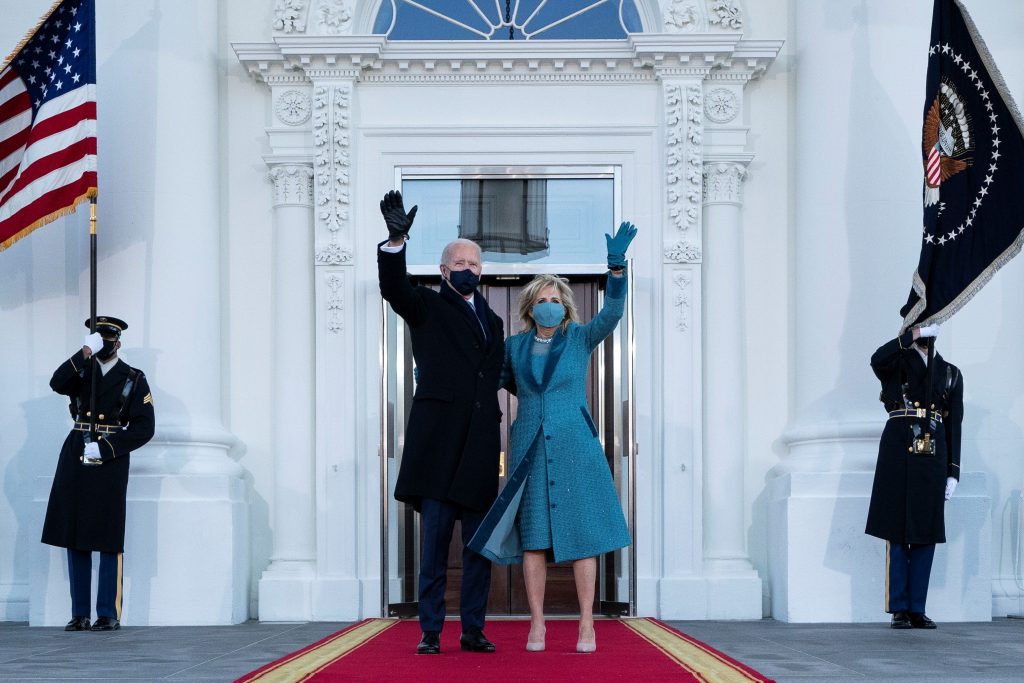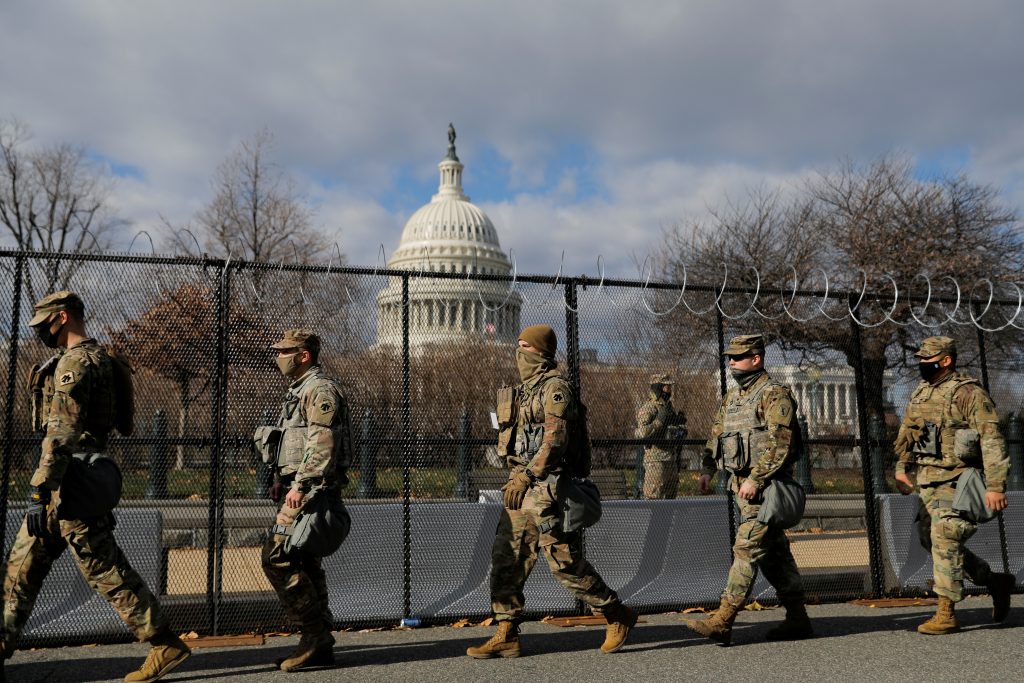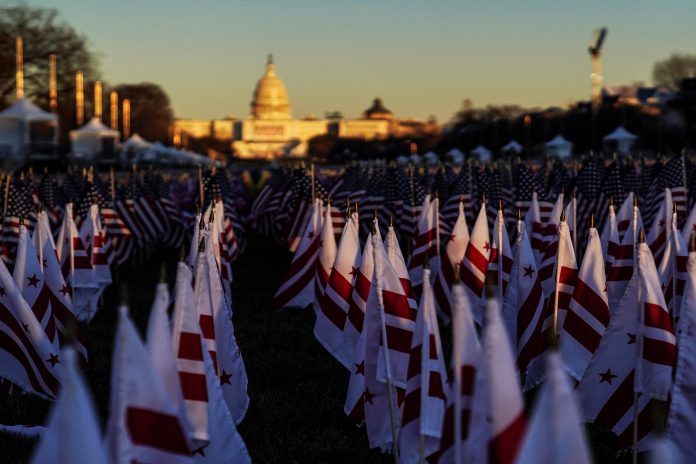January 21, 2021. That day read like a feel-good novel. And with good reason.
Donald John Trump has finally left the building. His departure from the Oval Office was probably the most sought-after event next to the presidential inauguration.
Trump will go down in history as having achieved what no other U.S. President has ever achieved: four years of dividing a nation proud of the name “United,” ending in the siege of the U.S. Capitol.
The 46th U.S. President — Joseph Robinette “Joe” Biden Jr.—was sworn in. Kamala Devi Harris makes history as the first female to occupy the Vice President’s chair. Truly, hope springs eternal, for want of a better cliché.
The overwhelming sense of relief was unbelievable, even for one who is not an American like me. This, perhaps, was an offshoot of the “power of sympathy” most of the world felt for an America which has suffered much under Trump’s infantile thumb. W.H. Brown’s book of the same title, Power of Sympathy, touted as the first American novel, appeared on this very day in the year 1789.
What most people failed to see amid the celebrations was the deployment of tens of thousands of armed troops to the inauguration site, some say to the tune of 25,000 or more. This comes in the heels of multiple threats of a weeklong siege by Trump’s Proud Boys after the successful assault on the Capitol.
The idea, according to some news outlets, was to “capture and detain” officials who belong to the Democratic Party “and set up a new government led by Republican leaders of their choosing.”
Many say it’s poetic justice: America has suffered under Trump the same indignities its government has heaped on nations less powerful and more susceptible to American influence. I have to admit, the coincidence is quite remarkable, well-nigh in the same cone as something preordained.
Trump has left an America with cracks large enough for all sorts of cultic vermin to come out of the woodwork. This infestation of rightwing, ultra-fascist devotees almost gave Trump a crack at a second term.
Thanks to Americans who still love their democratic ways, some former red states tipped blue and won the day for the 78-year-old fresh-off-the-grill Chief Executive.
This turn of events, largely envied by nations such as ours for its return to democratic ideals, would now whisk America back to what it was, or, better yet, an America that has finally found its original moorings. What better proof of coming of age than to be more considerate of its neighbors and allies and the world at large.

Of the sundry one-liners delivered by Biden on his inauguration, one stood out: “And this I promise you: We will be judged, you and I, by how we resolve these cascading crises of our era. We will rise to the occasion.”
By “crises of our era,” he may be referring to the movement and expansion of the alt-right in U.S. shores, the rage of the pandemic which has infected close to 25 million Americans, and geopolitical tensions involving the People’s Republic of China, among others.
One crisis, though, which hasn’t been raised in any of the presidential inaugural addresses of any American president, is the tragedy of exercising democratic rule within, but imperial rule without.
While I understand a U.S. President’s responsibility to look after Number One—Number One being the interests of the United States—it’s impositions on the world outside its borders, on the whole imperial in character and nature, should once and for all be dealt with.
Today, a ravenous pathogen is on the verge of forcing the world to its knees. We are not there yet even at 2.3 million deaths, but it is well-nigh a certainty had it not been for efforts of different countries to formulate a vaccine.
We don’t need the excesses of empire, no matter how just the cause, getting in the middle of our efforts to stay alive.
Impunity, too, with all its attendant griefs and torments. In the Philippines, American soldiers don’t only get away with murder, they make sure rape cases are buried underneath tons of extrajudicial babble.
For most Americans, U.S. President Joe Biden comes as a breath of fresh air. To the world, on the other hand, doubt remains.
Talk of liberty, democracy, of rising to the occasion and compassion for mankind holds little sway in the minds of people when heard from the lingua franca of empire, one spoken in hushed tones, behind closed doors, and with a forked tongue.
Instead of going back to what America was pre-Trump—an America that is more royal than free—perhaps Joe Biden should plan on moving the United States forward, regardless of the future being one uncharted territory to the next.
If I understand America’s history correctly, this nation was founded on the boldness of expedition, revolution, and discovery.

The 22-year-old poet Amanda Gorman knows: “We are striving to forge a union with purpose, / To compose a country committed to all cultures, colors, characters and conditions of man. / And so we lift our gaze not to what stands between us, / But what stands before us. / We close the divide, because we know to put our future first, / We must first put our differences aside.”
More than any low-lying hill, this is the mountain America must climb. One less empire and the world can breathe more easily.
So, does the America people love still exist? The America of courage and of freedom, wrought in the fires of revolution, eyes ever fixed on the now and the future? Many say it has long reneged on its principles to give way to the much-touted American Dream, meaning wealth, the chance to make it big in the world.
No doubt untold numbers of unknown people had reshaped that dream to further their interests and advantage. They’re the same people who say the world is the better for it.
American novelist Kurt Vonnegut, in his book Slaughterhouse Five, begged to differ:
“Americans, like human beings everywhere, believe many things that are obviously untrue. Their most destructive untruth is that it is very easy for any American to make money. They will not acknowledge how in fact hard money is to come by, and, therefore, those who have no money blame and blame and blame themselves. This inward blame has been a treasure for the rich and powerful, who have had to do less for their poor, publicly and privately, than any other ruling class since, say Napoleonic times. Many novelties have come from America. The most startling of these, a thing without precedent, is a mass of undignified poor.”
I hate to believe that the die had been cast, and that America is nowhere near changing than any likelihood of Trump ever changing for his own sake. Some may say I have no right to comment on America’s worldview, not being an American myself.
But I rue the day I’d wish for any nation to fall into the trap America has fallen into: to think of itself on an untouchable plain than all the rest.
As in any democratic country, in America, anyone can run for president. That is both the boon and bane of democracy. Tyrants all throughout history have milked this principle for what it’s worth.
A democratic nation’s only redemption from this drawback remains in the hands of a people willing and able to make a difference.
With the Biden-Harris win, America has showed us it can be done. Nations can win over their fears. The next step beckons: will he be free, working side by side with others, or will he be just another American president trapped in delusions of empire?
The countdown starts today.
Joel Pablo Salud is an editor, journalist and the author of several books of fiction and political nonfiction. The views and opinions expressed in this article are those of the author and do not necessarily reflect the official editorial position of LiCAS.news.









